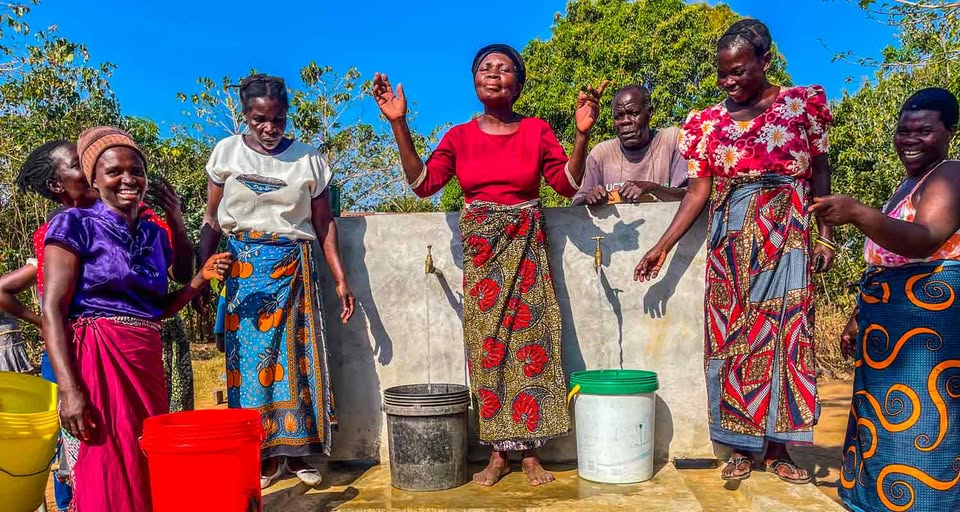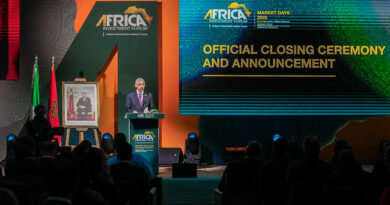AfDB-Funded Project Brings Clean Water and Hope to Rumphi, Malawi
A transformative water and sanitation project backed by the African Development Bank (AfDB) and the Government of Malawi is bringing renewed hope to residents of Rumphi District, northern Malawi, where limited access to clean and safe water has long hindered development.
With a $32.2 million grant from AfDB and a $3.67 million contribution from the Malawi Government, the Rumphi Water and Sanitation Services Project aims to increase access to climate-resilient potable water and safely managed sanitation services in Rumphi Town and surrounding areas. The four-year project, running from December 2023 to December 2027, is expected to benefit over 158,000 people, 51 percent of whom are women.
Speaking during a recent monitoring visit by AfDB, Rumphi District Commissioner Emmanuel Bulukutu underscored the significance of the project. “Rumphi is growing, but without water and improved sanitation, development stalls. This project is critical as it will not only support the thriving Rumphi Technical College but also improve the quality of life for all residents,” said Bulukutu.
At the heart of the water crisis is the Rumphi Water Supply Scheme, last upgraded in 2003 and designed for a demand of 1.5 million litres per day, far below the current daily demand of 10 million litres. The system currently serves just 23% of the town’s population. Once completed, the upgrade will increase production capacity to 19 million litres daily, catering for projected population needs up to 2045.
Francis Munthali, CEO of the Northern Region Water Board (NRWB), noted the increasing pressure on the outdated infrastructure: “If we are to sustain supply to the college, we have to ration water in town where the main hospital and other vital facilities also need it. We’re facing a real crisis.”
The impact of water shortages is especially felt at Rumphi Technical College, where over 500 students and 45 staff members grapple with limited supply. In recent months, cholera scares have disrupted learning as students were forced to rely on unprotected water sources. “Sometimes we send students to fetch water from a salty borehole left by the contractor. It’s neither safe nor sustainable,” said Principal Akuzike Nkhoma.
Beyond the town center, communities in Phwezi, Bwengu, Enukweni, and Bolero have struggled for years without reliable access. Bolero relies on a gravity-fed system that falls short of local demand. Senior Chief Chikulamayembe voiced concern: “Growth centers like ours should have reliable water sources to foster prosperity and health.”
To address these challenges, the NRWB is also focusing on ecosystem-based adaptation and sustainable catchment management. Catherine Mwafulirwa, Director of Infrastructure Development at NRWB, revealed that 700,000 trees will be planted under the project. So far, 264,000 trees have been planted, creating hundreds of short-term jobs, particularly for women.
“For the first time, Rumphi town will have a proper sewer system. We’re extending water supply to underserved areas and have engaged consultants to prepare detailed designs and procurement documents,” said Mwafulirwa. Contractor recruitment is expected before the end of 2025.
Community involvement is central to the project. Over 100 locals, mainly women, have been employed in raising and planting tree seedlings. Dora Mkandawire, a Rumphi resident, emphasized the gendered burden: “It is us women who go to fetch water. These interruptions affect our productivity.”
The project will ultimately ensure water access along the 83-kilometre stretch from Mzuzu to Rumphi via Ekwendeni, Enukweni, Bwengu, and Phwezi, transforming Rumphi into a regional hub of economic activity and human capital.
“This isn’t just about water,” concluded Commissioner Bulukutu. “It’s about hope, dignity, and building a future our people can rely on.”



